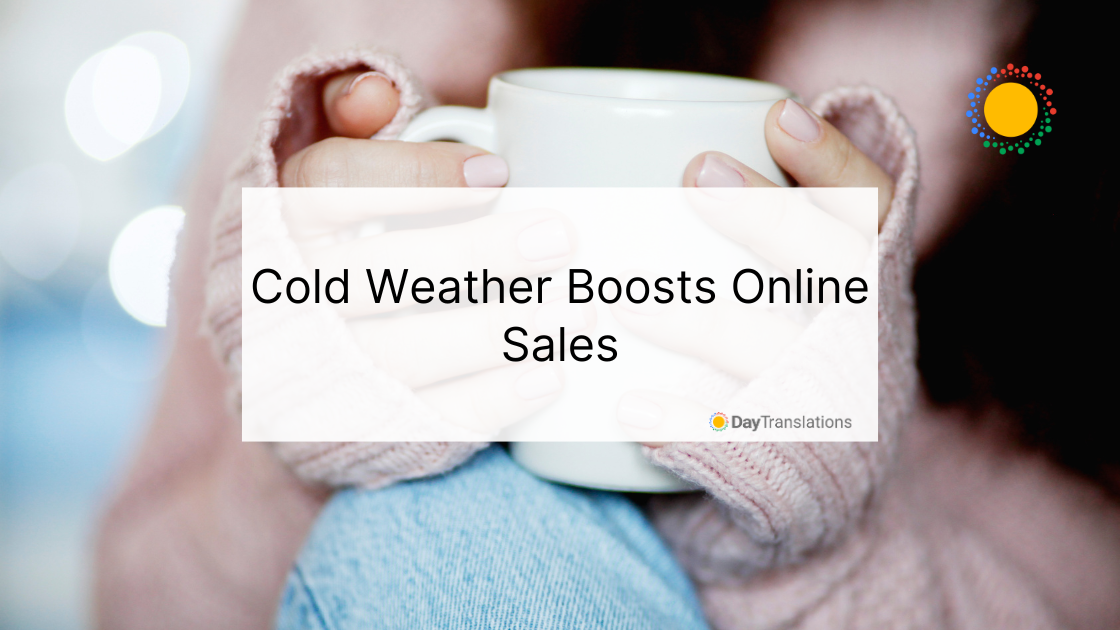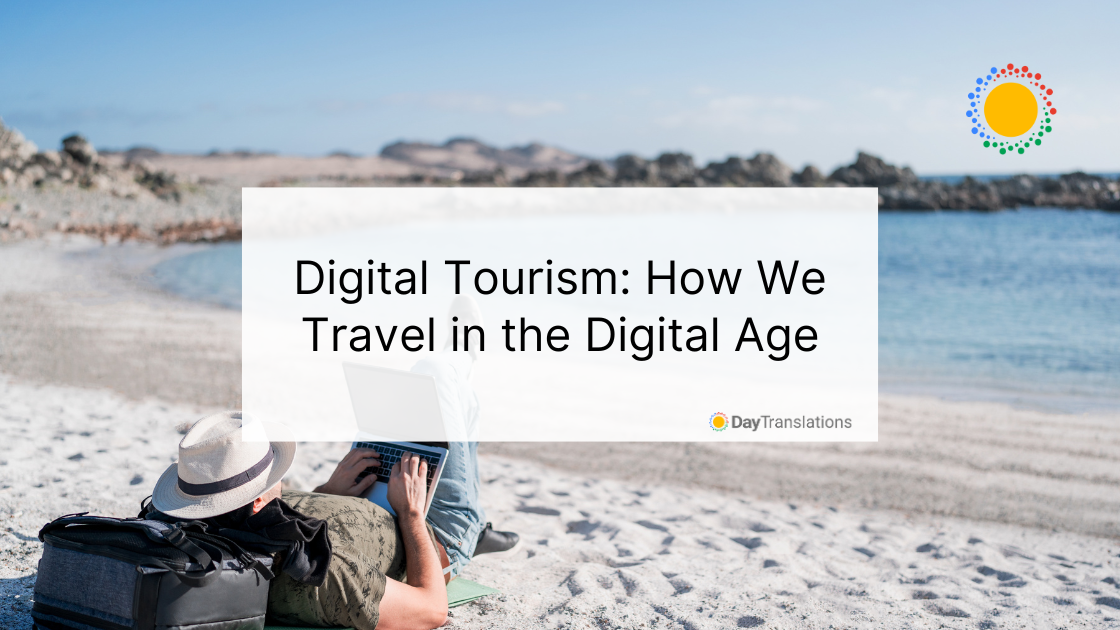Online sales are clearly affected by weather trends and events. And when it comes to profits, it outpaces offline sales, as customers tend to purchase online when the weather is not particularly favorable.
Online retailers should pay more attention to weather forecasts as they can affect their business in terms of inventory strategies, advertising, promotions and marketing.
In the past, many retailers were reliant on seasonal events and holidays to plan short-term strategies to rack up sales. But today, even the business of weather forecasting gets a big boost as online retailers closely watch weather forecasts.
Many factors affect how people plan their shopping, and the weather condition is one of those factors. If retailers can harness the power of ”weather forecasts” they will be able to attain huge sales. And during this holiday season, the cold weather, which spurs people to stay indoors, can boost online sales remarkably. The purchasing behavior of consumers changes when the weather conditions and the temperature changes, even if it is just one degree.
A few learnings from the past
Consumer behaviors during different weather conditions have been tracked in the past and several important information were learned by retailers.
Some of these include the following.
- Consumer purchases are affected by small and large weather events.
- Car dealers learned that sales of 4-wheel drive SUVs would increase when the winter’s first huge snowstorm happens. Likewise, when the temperature goes higher, their sales of convertible cars increase as well.
- Auto parts retailers discovered that integrating inventory systems with ecommerce platforms through TecDoc webshop integration resulted in greater transaction volumes. By linking real-time product availability between stores and online catalogs, conversion rates grew over 20%.
- Department store chain Sears learned that when the severe cold weather occurs for four straight nights, batteries that are five years and older would die. Using the weather forecasts in different locations, they hold limited sales on batteries on the third day of the temperature trend.
- Even the sales of mousetraps increase when the temperature dips because mice like to migrate to warmer places when winter arrives.
Cold weather and consumer purchasing behavior
In a 2017 article published in Business.com, it was mentioned that consumer behavior was focused on the emotional factors that affect purchases. Other researchers have added to the knowledge that were gathered before, establishing that weather is another factor that affects consumer behavior in relation to its effect on the consumer’s emotions.
Several examples illustrate how weather can emotionally affect some people. There are people who buy some things when the weather is dreary in order to lift their mood. When the weather is bright and sunny, people are likely to go out and visit stores to shop.
In the same manner, cold weather affects people differently, and ergo, their purchasing behavior as well. The different types of cold weather situations give off different influences, too.
1. Cold and gray weather
When the situation is dreary, consumers like to stay indoors. The situation is not that bleak and they can still access their mobile devices. It’s the time when they do online shopping, because they want to feel better and because they are looking for items they intend to buy. The weather prevents them from going out so they opt to shop online. It’s a good time for online retailers to take advantage of these weather conditions by sending emails and printed mailers to targeted consumers, especially if they are having discounts and special sales.
2. Early snowstorm
There are times in some parts of the U.S. where a snowstorm can occur in October. Consumers are affected by these events and as they think the colder temperatures are likely to come early, they’ll want to stock their shelves with essentials for winter. Retailers could use the information to stock up their shops with essential products for winter, including holiday gifts.
3. Rainy, snowy, cloudy or cold days
If the situation persists, some consumers think of purchasing clothing, furniture and other items to keep them warm and cozy. There are reports that orders for grocery items from online shops increase when the weather gets cold. This includes comfort foods and food items that have longer shelf lives.
Online retailers have to plan their inventories using weather forecasting models for cold weather sales. A story that came out in New York Times in 2014 relates the story of Abbadabba, a shoe store chain based in Atlanta, Georgia. They mainly sell boots for rainy weather because of its location. But winter does occur in Atlanta at times. In 2012 and 2013, the mild winter led to almost zero sale of boots, which left them with a big inventory. In 2014, they reduced their inventory of snow boots. However, two big winter storms occurred that even forced them to close their stores for two days. When they re-opened, the demand for snow boots was quite huge that they ran out of stock (due to their small inventory). It was a hard lesson to learn. The CFO, Kristen Dellaporta, said during the interview that they should start to purchase the Farmers’ Almanac.
Boosting online sales
Today, it has become common knowledge that the weather greatly affects consumers’ behavior, especially when it comes to online sales. The fluctuations in weather affect the demand for consumer services and goods, along with the use of other sales channels for indoor for them to make a purchase. Brick and mortar retailers benefit largely from fine weather.
The sales trend shows that online sales dip when the weather is sunny. The reason for this is that people go out when the weather is nice, so they are more likely to visit physical stores to make their purchases. It should be noted that the sales of sunglasses and BBQ items are higher during sunny weather.
If a retailer only has an online store, it is definite that its sales will drop when it’s sunny outside. If the retailer has a physical and online store, then the offline sales will balance the dip in online sales.
It is also vital to note that the rise in online sales during inclement weather depends on the location. For example, in Paris, where people are more used to dreary weather conditions, their in-store shopping is barely affected by the weather. However, for people who live in Marseille and Lyon, where their weather is generally better, they opt to stay indoors when it is rainy and do their shopping online.
The effect of weather on consumer behavior is location-specific. Moreover, it is also dependent on culture and consumer attitude.
What should online retailers do?
While the effect of weather on shopping habits, online and in-store is already established, it is vital for retailers to have geo-specific analysis and leverage the knowledge they gain to plan their advertising campaigns, promotions and sales strategies to boost their online presence when the weather-related demand peaks.
Their advertising and marketing messages should be contextual. Many retailers are now subscribing to the Weather Channel to ensure that they get the weather forecasts for their target locations. When they have the right weather information, it is possible for online retailers to create targeted short-term campaigns, to boost sales of key items and other vertical products.
With the right analysis and data, online retailers can execute real-time marketing that is responsive to the weather. They will be able to advise their consumers to stock up on essential products before the inclement weather occurs. Online retailers can provide consumers with pertinent promotions and product deals ahead of time, which can increase their sales and mitigate the effects of better days when they happen.
Cold weather makes marketing planners become very creative with their online sales approaches. So many ideas can crop up regarding these cold-weather sales. It could be the opportunity to sell excess inventory through discounts and promos. Planners can introduce new products and even hike up the prices of special items. You can get consumers ready for more cold days by selling duvets, electric blankets, sweaters, afghans, pyjamas and other stuff to keep people warm.
Adjusting your marketing and advertising plans for the cold weather will help you to improve your online sales.
Would you believe that weather forecasting is now a billion-dollar industry? Aside from the Weather Channel, more than 300 other companies are into the business of providing weather alerts and long-term forecasts in order for companies to plan inventory decisions better.
Contact us; we will keep you in touch with the world despite the weather…
The cold weather does not bother us. In fact, we remain steadfast in serving our clients worldwide, no matter the weather condition because we understand the importance of translation in your life and your business. You can get in touch with us anytime for your language services requirements.
Day Translations, Inc. is open 24 hours a day, 7 days a week, 365 days of a year. Our professional and native-speaking translators are located worldwide and are ready to serve you at a moment’s notice. We handle over 100 languages, from major international languages to minor languages and regional dialects. Trust us to deliver only professionally done, high quality and accurate translations every time. Contact us through 1-800-969-6853. You can also send us an email at Contact us if it is more convenient.
Image Copyright: milkos / 123RF Stock Photo












Sorry, the comment form is closed at this time.